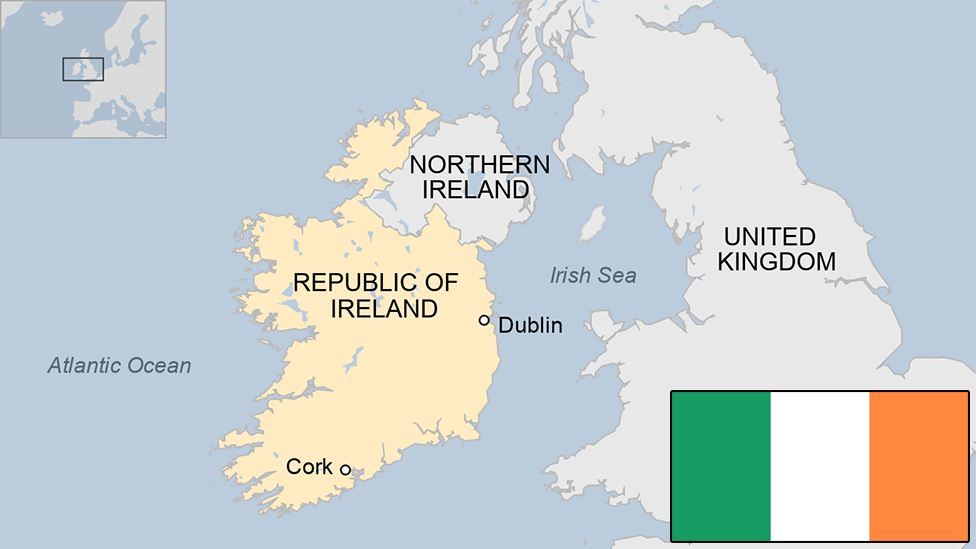Iceland country profile
- Published
This page is no longer being updated. It was last updated on 25 October 2024
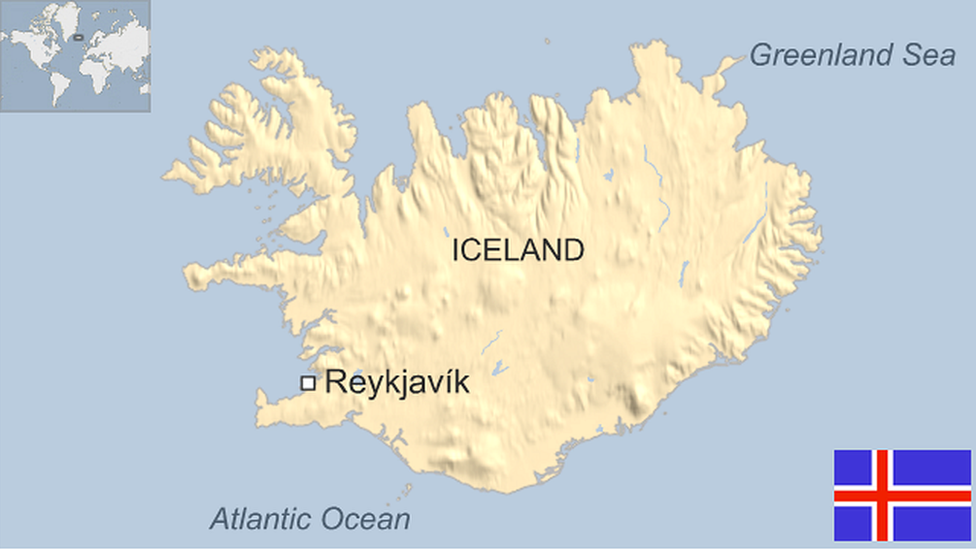
A sparsely-populated North Atlantic island, Iceland is famous for its hot springs, geysers and active volcanoes. Lava fields cover much of the land and hot water is pumped from under the ground to supply much of the country's heating.
Iceland became an independent republic in 1944 and went on to become one of the world's most prosperous economies. However, the collapse of the banking system in 2008 exposed that prosperity as having been built on a dangerously vulnerable economic model.
The affluence enjoyed by Icelanders before 2008 initially rested on the fishing industry, but with the gradual contraction of this sector the Icelandic economy developed into new areas.
Read more country profiles, external - Profiles by BBC Monitoring, external
REPUBLIC OF ICELAND: FACTS
Capital: Reykjavik
Area: 102,775 sq km
Population: 376,000
Language: Icelandic
Life expectancy: 80 years (men) 84 years (women)
LEADERS
President: Halla Tómasdóttir
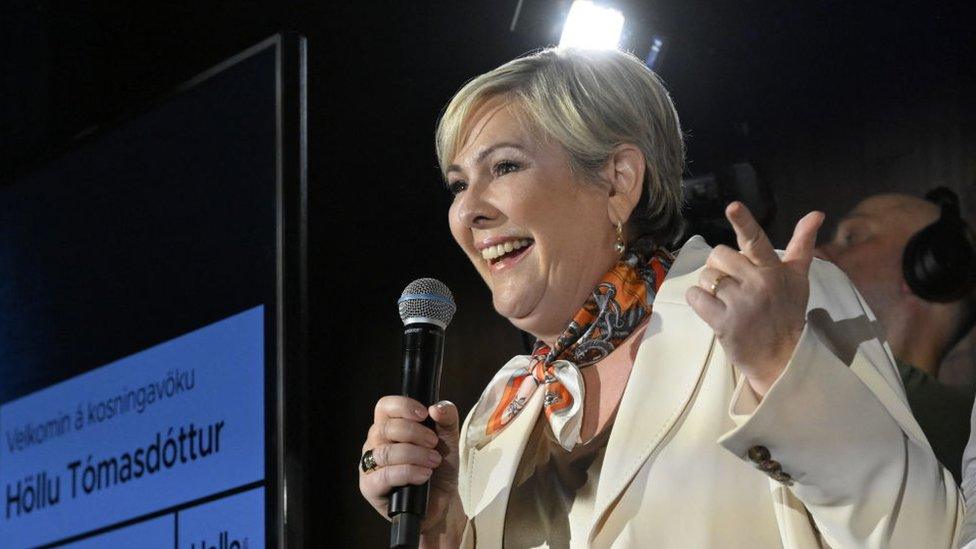
Halla Tómasdóttir was sworn in as president in August 2024, after defeating former prime minister Katrin Jakobsdóttir in the June elections.
The role is largely ceremonial. Tómasdóttir campaigned as someone who was above party politics and able to open discussions on issues like the effect of social media on mental health, tourism in Iceland and the role of artificial intelligence.
Prime minister: Bjarni Benediktsson
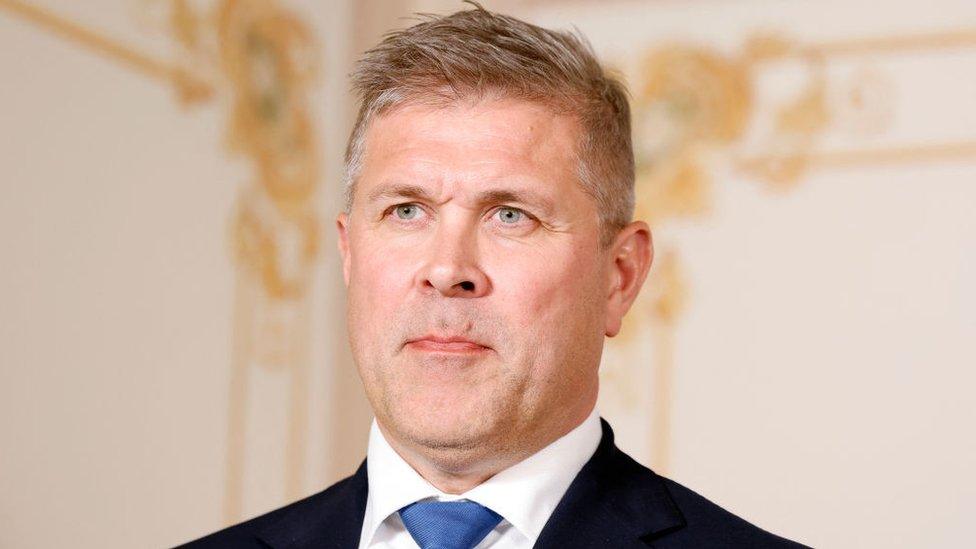
Foreign Minister Bjarni Benediktsson became prime minister in April 2024, after Katrin Jakobsdottir resigned from the post to run for president.
Benediktsson became the country's prime minister following an agreement between his own Independence Party, the Progressive Party and Jakobsdottir's Left-Greens.
He listed disability issues, energy procurement and bills, inflation and immigration as key policy areas for his government.
Benediktsson previously served as prime minister for 10 months from January to November 2017.
MEDIA
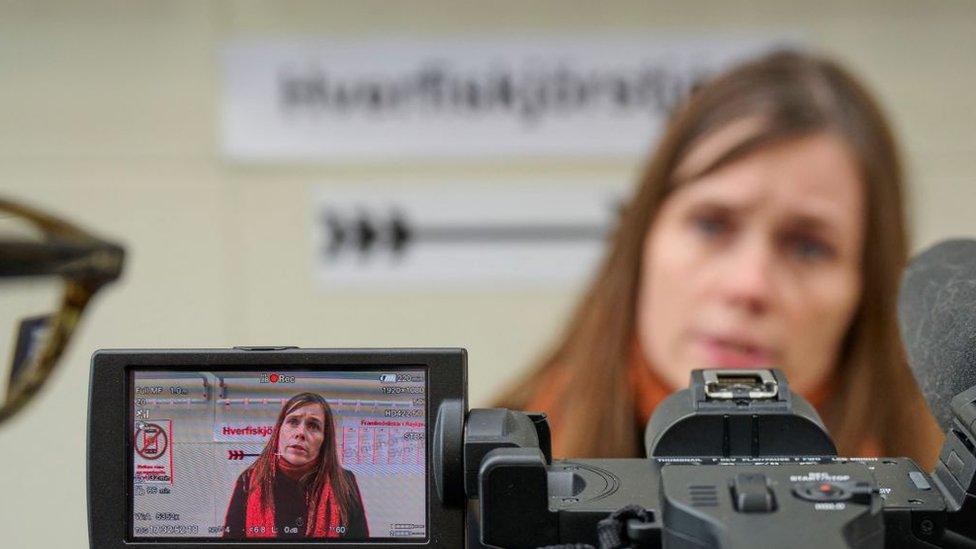
National public radio and TV are provided by the state-owned Icelandic National Broadcasting Service (RUV).
Ownership of private media is highly concentrated. The constitution guarantees press freedom.
Read full media profile
TIMELINE
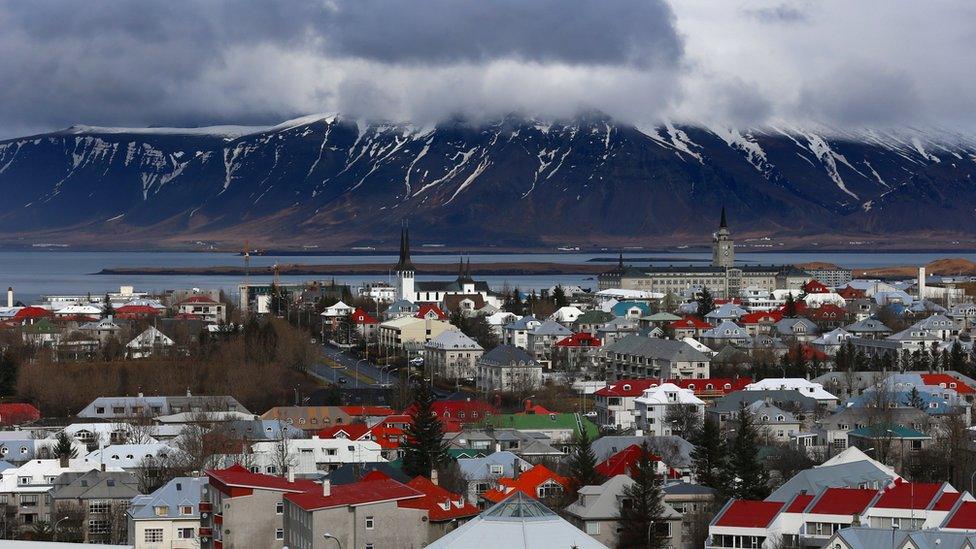
A view of Iceland's capital Reykjavik
Some key dates in Iceland's history:
870s - First Norse settlements on Iceland. Previous inhabitants were a small number of Irish monks.
930 - An annual parliament - the Althing - established.
986 - Erik the Red takes settlers from Iceland to colonise Greenland.
1000 - Iceland adopts Christianity. A golden age of Icelandic culture begins, producing great works of medieval literature.
1262-4 - Icelanders recognise the King of Norway as their monarch.
1380 - Norway and Iceland enter a union with the Danish crown.
1402-04 - Plague hits Iceland, killing half the population.
1494-95 - Plague returns with similar fatalities.
1550 - Catholic bishop, Jon Arason, captured and beheaded in his northern diocese. This marks the final victory of the Lutheran Reformation in Iceland.
1602 - Denmark assumes a monopoly on all Icelandic trade. This continues for around 200 years.
1700s - A period of decline in Iceland, with disease, famine and a volcanic eruption in 1783 reducing the impoverished population from 50,000 to 35,000.
1814 - Norway enters union with Sweden; Iceland remains under Danish rule.
1845 - The Althing meets again in Reykjavik.
1848 - Denmark's monarch renounces his absolute power; Denmark prepares to become a representative democracy.
1874 - Iceland given limited autonomy; the Althing has power over internal affairs.
1904 - Iceland attains home rule; rule by parliamentary majority introduced.
1918 - Iceland achieves full self-government under the Danish crown. Denmark retains control over foreign affairs only.
1940 - German forces occupy Denmark. British forces occupy Iceland.
1941 - The United States takes over the defence of Iceland and stations thousands of troops on the island.
1943 - The Treaty of Union with Denmark runs out, with Denmark still occupied by Nazi Germany.
1944 - Icelanders vote in a referendum overwhelmingly to cut all ties with Denmark and become a republic.
1949 - Iceland becomes a member of Nato.
1958-61 - First "Cod War" between Iceland and UK as Iceland extends its fishing limit to 19km.
1970 - Iceland joins European Free Trade Association (EFTA).
1972-73 - Second " Cod War" as Iceland extends the fishing limit to 80km leading to renewed confrontation with Britain.
1975-6 - Third "Cod War" with UK as Iceland extends its fishing limit to 370km.
1980 - Vigdis Finnbogadottir becomes first woman president of Iceland.
1992 - Iceland leaves International Whaling Commission (IWC) in protest at what it sees as the IWC's anti-whaling stance.
2002 - IWC votes by narrow margin to readmit Iceland as a full member, despite its plans to resume hunting for what it terms research in the near future and limited commercial hunting after 2006.
2004 - Grimsvotn volcano erupts, scattering ash as far away as Finland and causing aircraft to divert.
2006 - The last US military personnel leave the Keflavik base, ending a military presence dating back to 1951. The US says it will defend Iceland as a Nato ally.
Iceland breaks its 21-year moratorium on commercial whaling; the fisheries ministry authorises a catch of 30 minke and nine fin whales.
2008 - After years of growth between the late 1990s and mid-2000s, Iceland's economy collapses as a result of massive currency depreciation and the failure of its domestic banking industry.
2009 - Iceland formally applies for EU membership after parliament votes in favour of accession.
2010 - Volcano at the Eyjafjallajokull glacier erupts, creating an ash cloud disrupting flights throughout Europe for several months.
2015 - Centre-right governing coalition withdraws Iceland's application for EU membership.
2023 - Icelandic temporarily suspends hunting of fin whales over animal rights concerns.
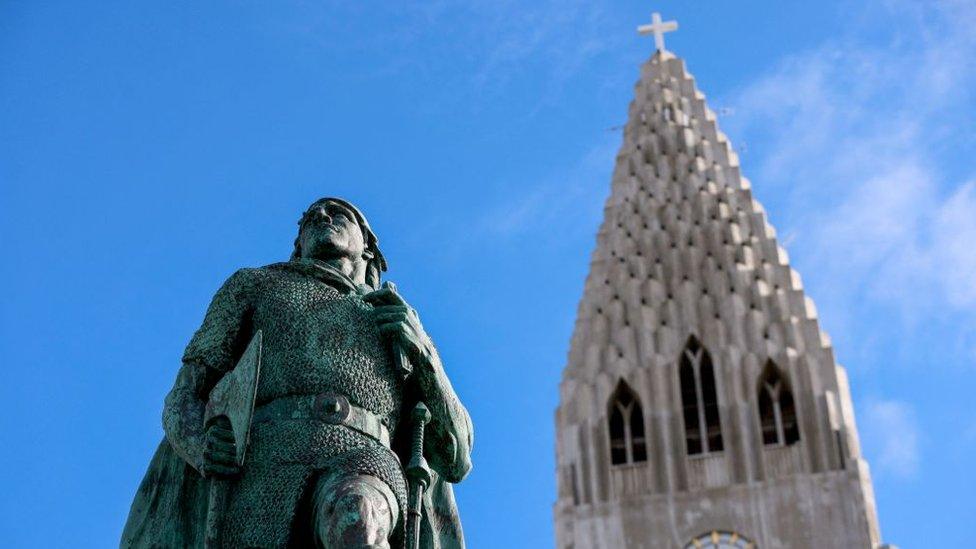
A statue of Leif Erikson and the tower of the Hallgrim church in Reykjavik
Related topics
- Published28 March 2023
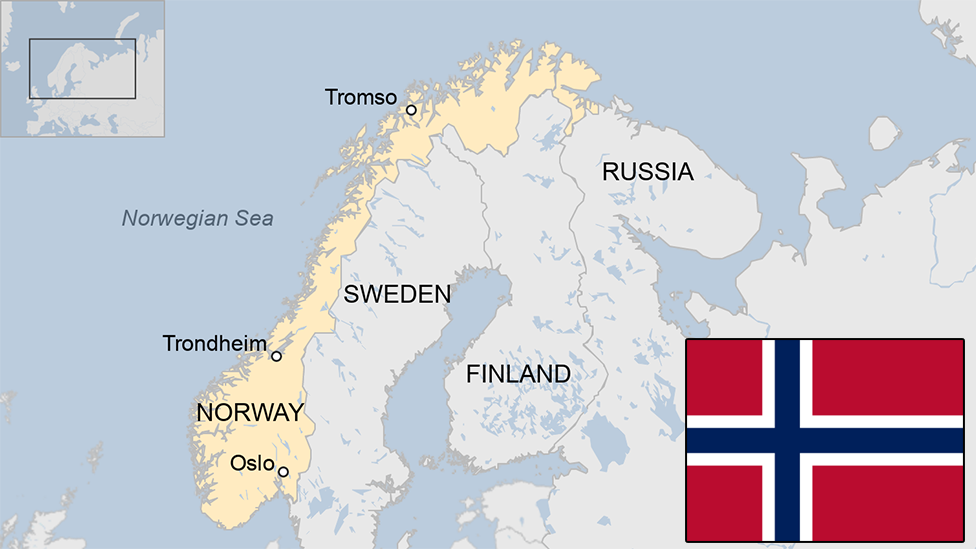
- Published29 March 2023
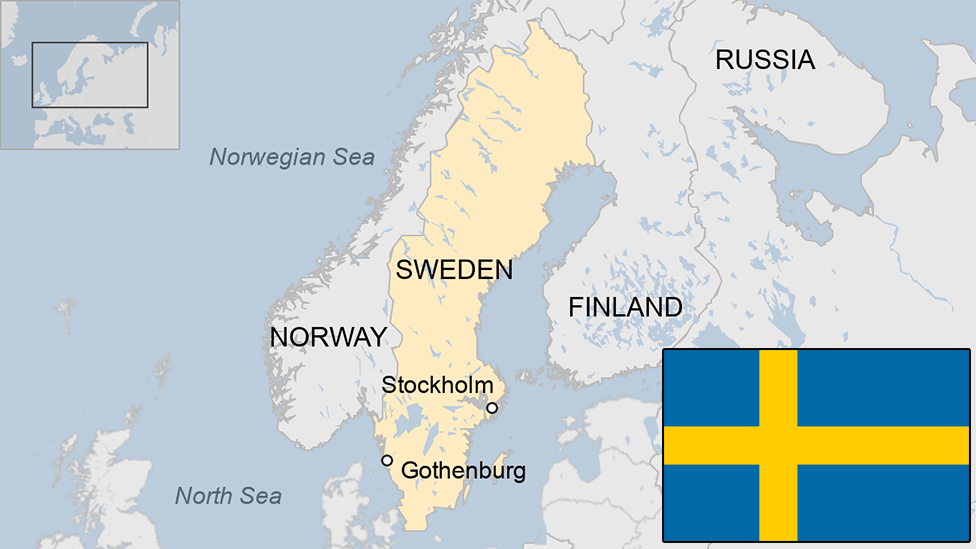
- Published8 January
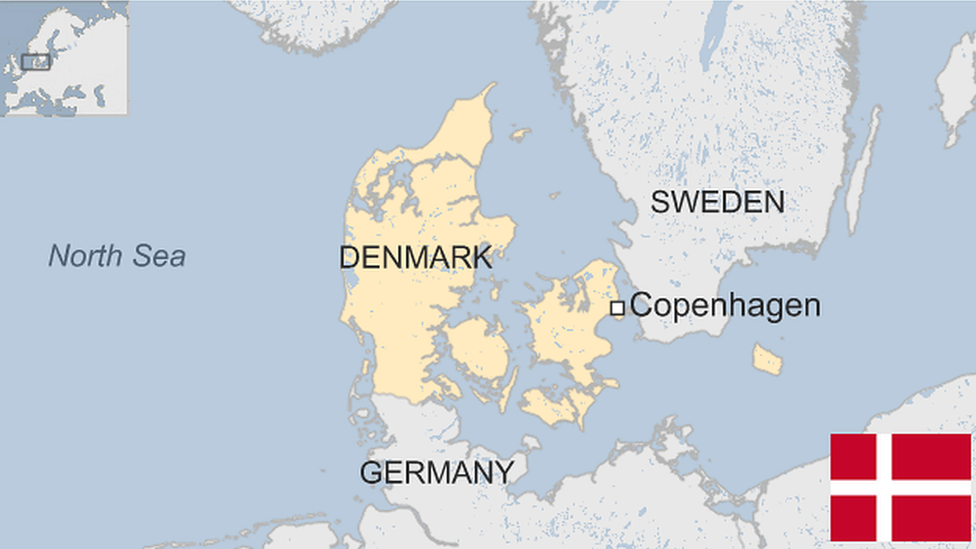
- Published11 February
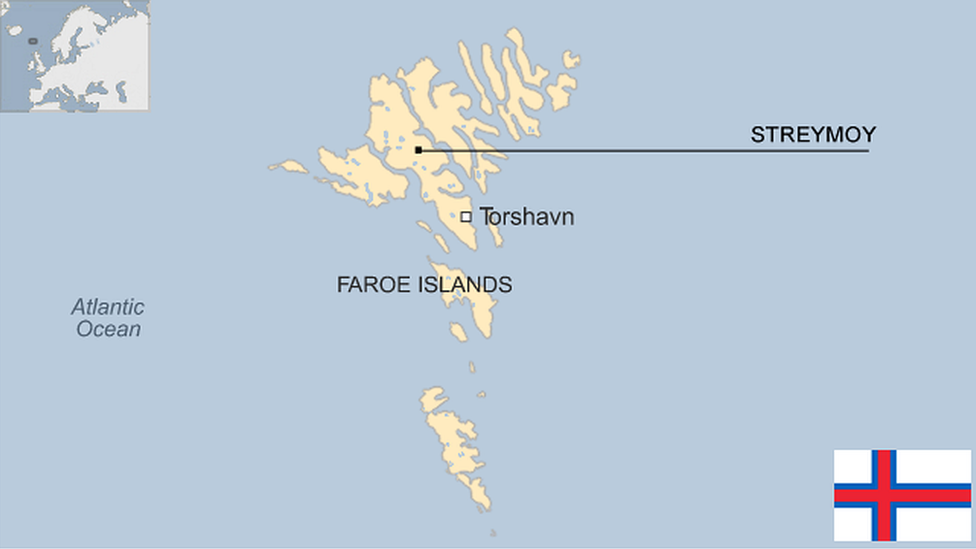
- Published9 July 2024
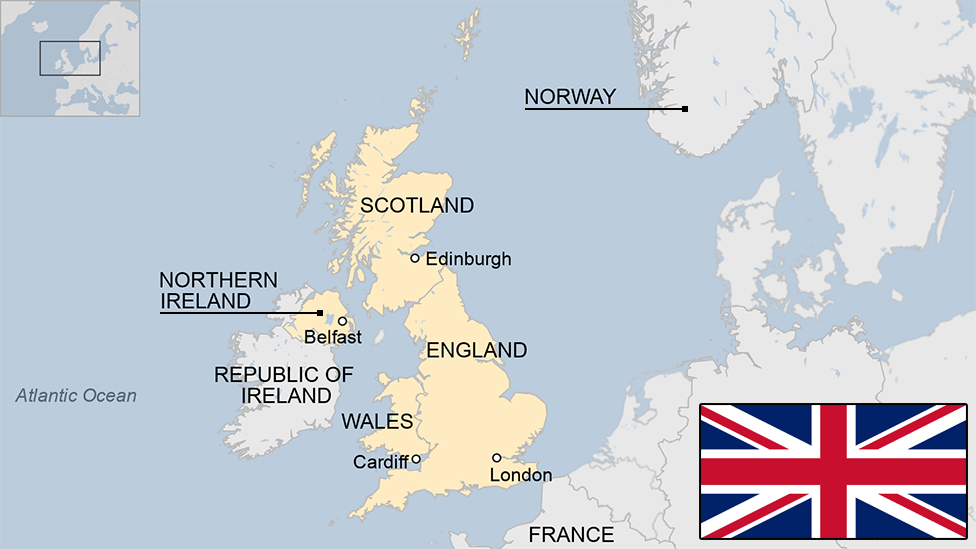
- Published7 February
